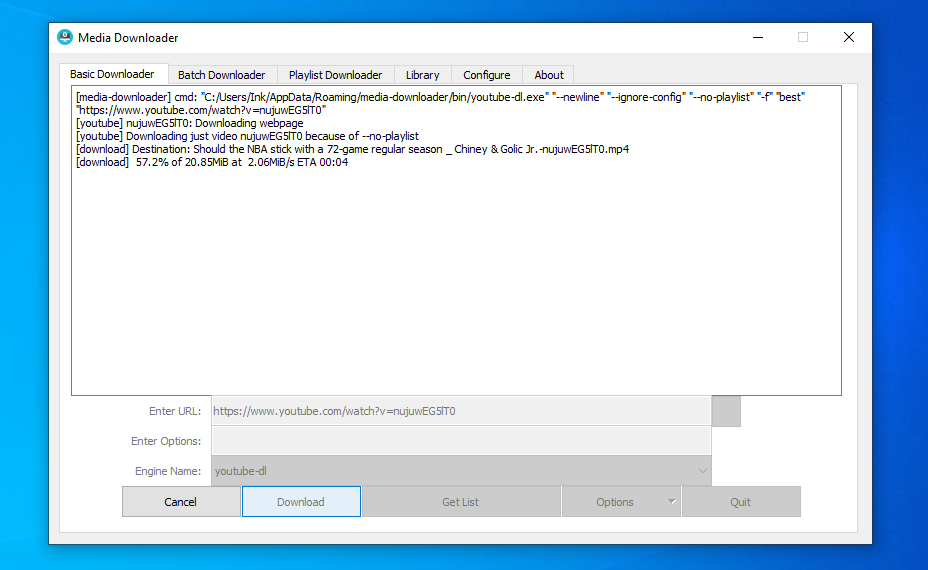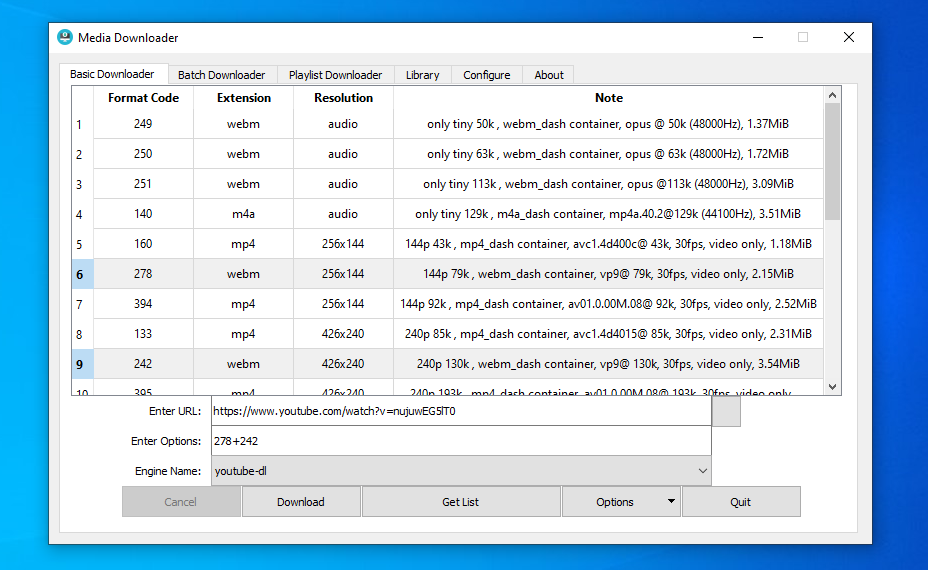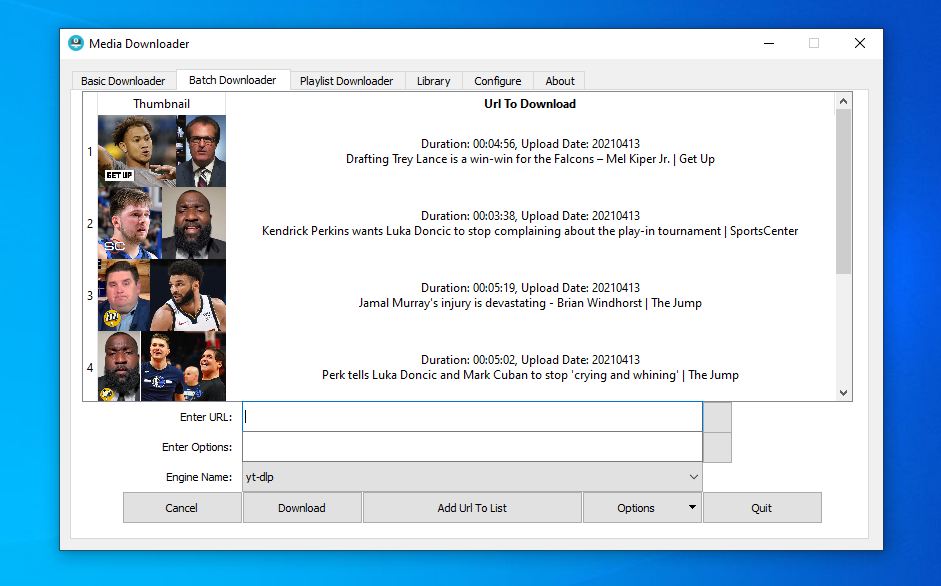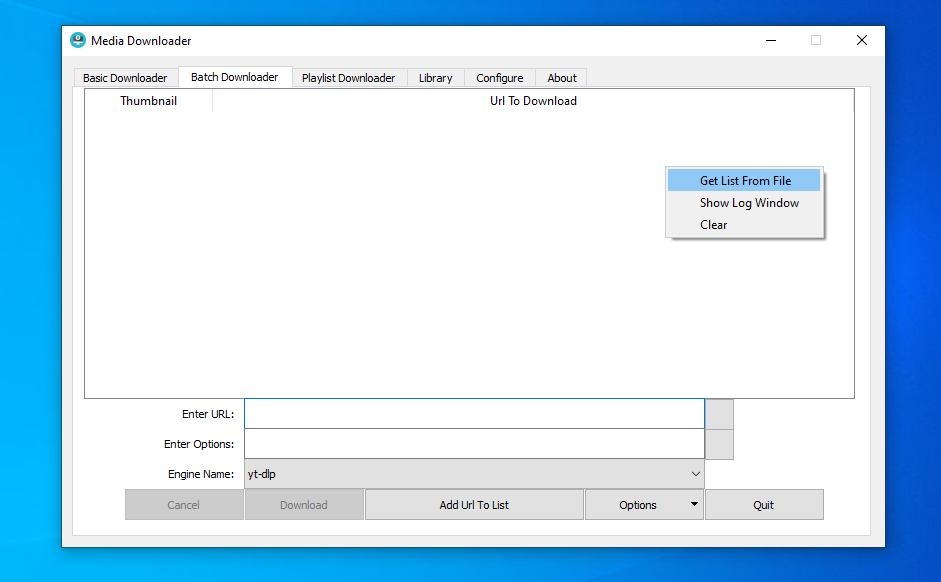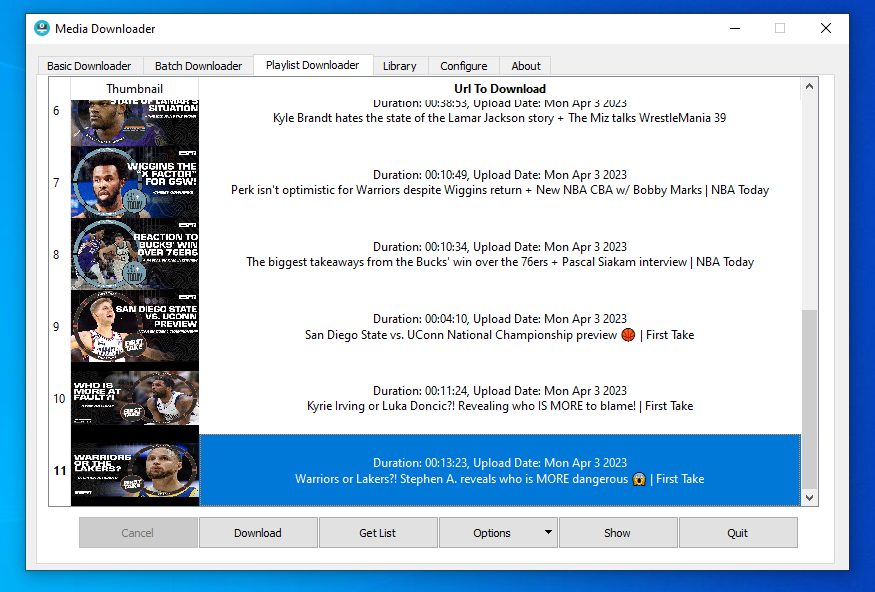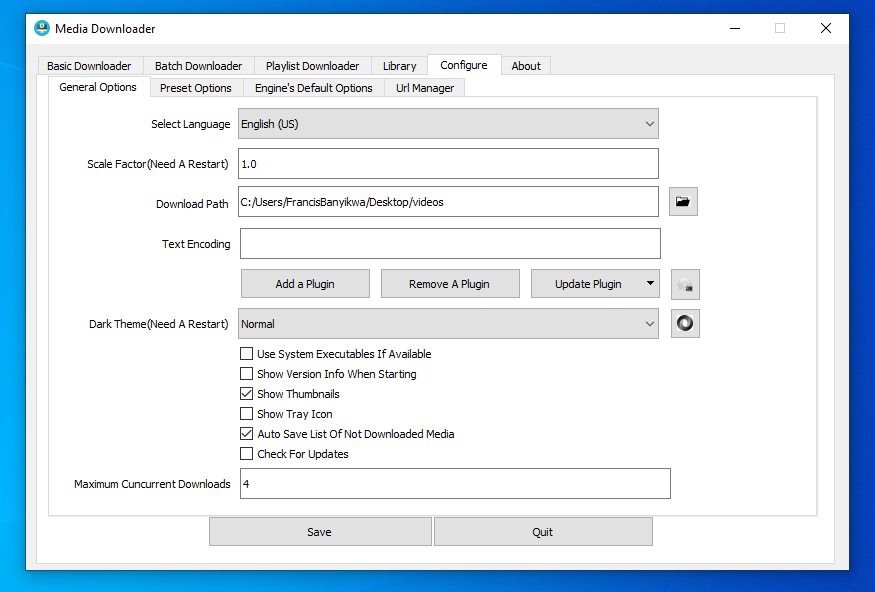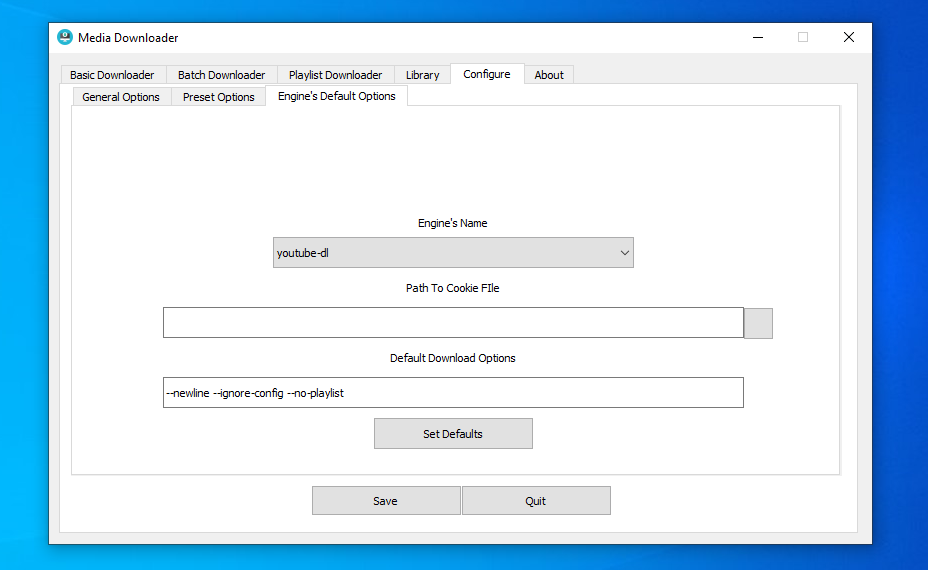This project is a Qt/C++ based GUI frontend to CLI multiple CLI-based tools that deal with downloading online media.
yt-dlp CLI tool is the default supported tool and other tools can be added by downloading their extension and a list of supported extensions is managed here.
Features offered:-
-
The GUI can be used to download any media from any website supported by installed extensions.
-
The GUI offers a configurable list of preset options that can be used to download media if they are provided in multiple formats.
-
The GUI offers the ability to do an unlimited number of concurrent downloads. Be careful with this ability because doing too many concurrent downloads may cause the host to ban you.
-
The GUI offers the ability to do batch downloads by entering individual links in the UI or telling the app to read them from a local file.
-
The GUI offers an ability to download a playlist from websites that supports them like YouTube.
-
The GUI offers the ability to manage links to playlists to easily monitor their activities(subscriptions).
-
The GUI is offered in multiple languages and as of this writing, the supported languages are English, Chinese, Spanish, Polish, Turkish, Russian, Japanese, French, and Italian.
Media Downloader is a GUI front end to yt-dlp, gallery-dl, lux, you-get, svtplay-dl, aria2c, and wget.
Read the extensions page for further information on these programs and how to install them.
A Frequently asked Questions page is here.
Make sure you have access to the internet before you run "Media Downloader" for the first time because it will attempt to use the internet to download the latest version of yt-dlp. Installing most extensions will also cause "Media Downloader" to access the internet to download the extension's executable.
Bundle for MacOS is here. This bundle is not notarized and your system may report it as "corrupted". Search the internet on how to install bundles that are not notarized if you want to use this app on MacOS. This bundle works on macOS 14.0 or later.
Installer for Microsoft Windows is here.
A portable version is a self-contained version that keeps everything in the application folder and does not need to be installed first.
Portable version for Microsoft Windows is here.
You can also install the portable version for Windows using scoop with the following commands:
Add the extras bucket:
scoop bucket add extrasInstall Media Downloader:
scoop install media-downloaderGit versions for windows and macos can be downloaded from here.
Media Downloader is on flathub for those who prefer to use flatpaks.
Arch Linux users can build the project from source using this aur package.
Media Downloader is in official Fedora repositories and can be installed by running sudo dnf -y install media-downloader
Binary downloads for a few Linux distributions are here.
To install a binary package in Ubuntu, download a binary package directly and then click it and Ubuntu should offer to install it. If unsuccessful, follow the instructions below for Debian.
To install a binary package for Debian, download a binary package directly and then install it by doing the following:- from the folder where you download the package.
1. Make sure you have Qt libraries installed.
2. Open the terminal.
3. Change directories to where the debian package is.
4. Run the following command to install it: su -c "dpkg -i *.deb"
5. Enter root's password when asked.
To install a binary package for Fedora and OpenSuse, download a binary package directly and then install it by doing the following:-
1. Make sure you have Qt libraries installed.
2. Open the terminal.
3. Change directories to where the debian package is.
4. Run the following command to install it: sudo rpm –i *.rpm
5. Enter root's password when asked.
To build from the source, follow the following instructions
1. Make sure you have the following packages installed:-
- Development version of Qt libraries. They will be named
something like "libqt5-qtbase-devel" or "qt5-devel" or
"qtbase5-dev" or something else that sounds similar.
- cmake
- gcc
2. Download the source archive and extract it.
3. Open the terminal and change directories to inside the extracted folder.
4. Run command: "mkdir build"
5. Run command: "cd build"
6. Run command: "cmake -DCMAKE_INSTALL_PREFIX=/usr -DCMAKE_BUILD_TYPE=release .."
7. Run command: "make"
8. Fun command: "sudo make install"
This program is intended to be used in a way that does not violate any laws that are applicable to its users.
This program is free software: you can redistribute it and/or modify it under the terms of the GNU General Public License as published by the Free Software Foundation, either version 2 of the License, or (at your option) any later version.
This program is distributed in the hope that it will be useful, but WITHOUT ANY WARRANTY; without even the implied warranty of MERCHANTABILITY or FITNESS FOR A PARTICULAR PURPOSE. See the GNU General Public License for more details.
